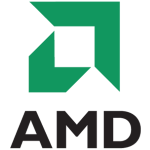

AMD has driven innovation in high-performance computing, graphics and visualization technologies - the building blocks for gaming, immersive platforms and the data center. Hundreds of millions of consumers, leading Fortune 500 businesses and cutting-edge scientific research facilities around the wor... AMD has driven innovation in high-performance computing, graphics and visualization technologies - the building blocks for gaming, immersive platforms and the data center. Hundreds of millions of consumers, leading Fortune 500 businesses and cutting-edge scientific research facilities around the world rely on AMD technology daily to improve how they live, work and play. AMD employees around the world are focused on building great products that push the boundaries of what is possible. Show more
Johnson Controls (NYSE:JCI), Robert Bosch GmbH (TG:R1WE) – Robert Bosch GmbH plans to buy Johnson Controls’ heating and ventilation division for $8 billion, expanding its operations...
SANTA CLARA, Calif., July 22, 2024 (GLOBE NEWSWIRE) -- AMD (NASDAQ: AMD) today announced that AMD President Victor Peng is retiring effective August 30, 2024. He will continue to serve on the...
U.S. index futures show a mixed trend in pre-market trading this Thursday, with technology stocks making a partial recovery after the Nasdaq experienced its worst session since 2022 the previous...
SANTA CLARA, Calif., July 16, 2024 (GLOBE NEWSWIRE) -- AMD (NASDAQ: AMD) announced today that it will report fiscal second quarter 2024 financial results on Tuesday, July 30, 2024, after the...
Costco Wholesale (NASDAQ:COST) – Costco has increased its membership fees by $5 for annual members, while the top-tier plan sees a $10 increase. This is the first fee hike since 2017...
ꟷ Europe’s largest private AI lab to accelerate the development and deployment of AMD-powered AI models and software solutions ꟷ ꟷ Enhances open-source AI software capabilities for efficient...
| Period | Change | Change % | Open | High | Low | Avg. Daily Vol | VWAP | |
|---|---|---|---|---|---|---|---|---|
| 1 | -14.88 | -9.60867880666 | 154.86 | 157.05 | 136.81 | 46529097 | 147.80215392 | CS |
| 4 | -21.31 | -13.2122264245 | 161.29 | 187.279 | 136.81 | 53447893 | 165.99430452 | CS |
| 12 | -8.77 | -5.89579831933 | 148.75 | 187.279 | 136.81 | 50781557 | 162.84726563 | CS |
| 26 | -35.31 | -20.1437617662 | 175.29 | 227.3 | 136.81 | 60272103 | 171.49039774 | CS |
| 52 | 28.07 | 25.0826557055 | 111.91 | 227.3 | 93.1242 | 61270872 | 146.16358042 | CS |
| 156 | 47.97 | 52.1356374307 | 92.01 | 227.3 | 54.58 | 71765494 | 112.24150008 | CS |
| 260 | 105.75 | 308.939526731 | 34.23 | 227.3 | 27.15 | 64928520 | 94.90395996 | CS |
 Stock Guy777
12 hours ago
Stock Guy777
12 hours ago
 pepeoil
14 hours ago
pepeoil
14 hours ago
 pepeoil
4 days ago
pepeoil
4 days ago
 pepeoil
5 days ago
pepeoil
5 days ago
 52172
5 days ago
52172
5 days ago
 52172
5 days ago
52172
5 days ago
 52172
2 weeks ago
52172
2 weeks ago
 52172
2 weeks ago
52172
2 weeks ago
 52172
2 weeks ago
52172
2 weeks ago
 52172
2 weeks ago
52172
2 weeks ago
 Stock Guy777
2 weeks ago
Stock Guy777
2 weeks ago

It looks like you are not logged in. Click the button below to log in and keep track of your recent history.